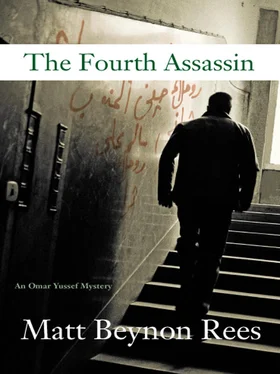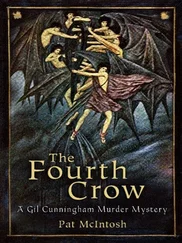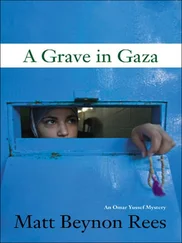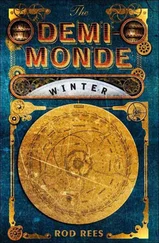Matt Rees - The Fourth Assassin
Здесь есть возможность читать онлайн «Matt Rees - The Fourth Assassin» весь текст электронной книги совершенно бесплатно (целиком полную версию без сокращений). В некоторых случаях можно слушать аудио, скачать через торрент в формате fb2 и присутствует краткое содержание. Жанр: Криминальный детектив, на английском языке. Описание произведения, (предисловие) а так же отзывы посетителей доступны на портале библиотеки ЛибКат.
- Название:The Fourth Assassin
- Автор:
- Жанр:
- Год:неизвестен
- ISBN:нет данных
- Рейтинг книги:3 / 5. Голосов: 1
-
Избранное:Добавить в избранное
- Отзывы:
-
Ваша оценка:
- 60
- 1
- 2
- 3
- 4
- 5
The Fourth Assassin: краткое содержание, описание и аннотация
Предлагаем к чтению аннотацию, описание, краткое содержание или предисловие (зависит от того, что написал сам автор книги «The Fourth Assassin»). Если вы не нашли необходимую информацию о книге — напишите в комментариях, мы постараемся отыскать её.
The Fourth Assassin — читать онлайн бесплатно полную книгу (весь текст) целиком
Ниже представлен текст книги, разбитый по страницам. Система сохранения места последней прочитанной страницы, позволяет с удобством читать онлайн бесплатно книгу «The Fourth Assassin», без необходимости каждый раз заново искать на чём Вы остановились. Поставьте закладку, и сможете в любой момент перейти на страницу, на которой закончили чтение.
Интервал:
Закладка:
He bent low as he made for the exit. His soaking socks squelched and his loafers slipped. Another shot splintered wood from the doorframe. Running footsteps sounded in the building. He went through the door and pulled it shut.
The empty lot in the rear of Playland was a thicket of brown winter scrub. Omar Yussef plunged into the stiff, fawn bushes. Plastic Fanta bottles and bucket-sized Coke cups littered the ground like the seed pods of a virulent weed, hidden by the new snow, tripping him. He cut toward the fence and tumbled into a ditch.
Scrambling to his feet, he went along the depression, slipping on the snow that drifted deeper there. He halted to listen for Nizar’s footsteps ahead of him or the gunman’s chasing him. He heard only his own wheezing. A shot sounded. The snow kicked up a few yards behind him. He scampered along the ditch and dragged himself up a slope toward a six-foot fence.
It truly was Nizar, he thought. He’s alive. But someone wants him dead.
He shook the fence until he found a loose section and edged through. His coat caught on the ragged chain-link. He twisted to free himself. Another shot, and he dropped on his hip beyond the fence. Pain burned red-hot in the small of his back, so intense that he was sure he had taken a bullet.
He bellowed as he shambled toward the beach. Rubbing his back, he discovered there was no bullet wound, only a wringing sensation that gripped his spine deep beneath the meager muscles.
If Nizar is alive, whose body did I find in the apartment? he wondered. Rashid is still missing. Could it have been his?
Between his irregular, limping footfalls on the concrete, he heard the gunman crashing through the undergrowth parallel to him. Cheap signs covered the fence, painted with fat letters advertising clam bars and knishes, candy apples and shish kebab, screening Omar Yussef from the shooter. He touched an ad for a seafood restaurant with his fingertips and whispered his thanks.
Omar Yussef turned on to the Boardwalk and hobbled past the shutters of a fried-chicken stand. He came to a waist-high wall at a gap between the food booths, and collapsed against it. The wall was painted in blue characters on an orange background: Shoot the Freak-Paint Ball. Live human targets . Behind the low wall, there was a drop of ten feet to a derelict lot spread with empty oil drums, dried-out branches, and sections sheared off a car’s body. Omar Yussef frowned. This was a game? He imagined a summer’s day, the Boardwalk crowded, people eating ice cream and cotton candy, coughing up a dollar to shoot pellets filled with paint at men paid to dodge behind the concrete blocks and packing crates. It seemed to him like something from ancient times of human sacrifice and mortal entertainments.
Footsteps mounted the ramp to the Boardwalk. A man came to the corner of the fried-chicken stand, the moon behind him. He lifted his gun.
It’s not a game and I’m not going to be the freak, Omar Yussef thought. He jumped the low wall and fell into the dark lot.
His ankle twisted when he landed. It hurt badly, but he had to move. He hobbled toward a car hood propped against two oil drums and dropped behind it.
The shooter halted by the wall and was still.
Is he going to come down here? Omar Yussef rubbed his ankle and fought to calm his breathing. He peered through the air ports on the car hood and saw the gunman silhouetted against the moon over the Boardwalk. The man lifted his arm and Omar Yussef ducked.
A shot smacked into a tree trunk a few yards from him. He recoiled, pressed his back against the car hood, and hoped that the oil drums would hide him if the gunman descended to search at close quarters. In his pocket, he ran his fingertips over the scabbard of the Omani dagger. Should the gunman come near enough, would he be able to use it?
Another shot hit a crate of bottles, and a third connected with metal somewhere very close. Omar Yussef figured he might escape if he could reach the shadow of the fried-chicken stand and work along to the rear of the lot. But he wasn’t sure he could walk well enough on his twisted ankle. He might end up flat on his back, immobile in the moonlight, an easy target.
He was about to make a break, when flickering red and blue lights illuminated the side wall of the fried-chicken stand and he heard the low hum of a police patrol car’s engine.
The muffled voice of a policeman burst from a loudspeaker: “Put down the gun, and put your hands in the air.”
There was a crunch of undergrowth and a grunt in front of Omar Yussef. The gunman has jumped. He’s in here with me, he thought.
The winter undergrowth crackled as the gunman jogged through the lot. The footfalls were slow enough that Omar Yussef knew the man was still looking for him. Then he heard the warning voice of a policeman at the wall. The gunman went into a run.
Omar Yussef wriggled as tightly as he could against the empty oil drum. The gunman ran low and fast through the shadowy edge of the lot. He wore a stocking cap and a quilted black jacket. He went around the back of the fried-chicken stand toward a parking lot filled with yellow school buses.
Peering through the air duct on the hood, Omar Yussef saw one of the policemen disappear along the Boardwalk to try to head off the fleeing gunman. His partner flicked a flashlight across the debris below the Shoot the Freak sign.
Omar Yussef rolled out from behind the oil drum and called to the policeman. “Don’t shoot. I’m not armed. It’s me he was after.”
The policeman held a gun in his right hand. Omar Yussef squinted against the light in the man’s left. He crawled toward the cop, shielding his eyes from the glare. He kneeled in the snow, put his hands on top of his head, and tasted vomit on the back of his tongue.
Chapter 21
Sergeant Abayat pushed two eight-inch-long boxes toward Omar Yussef on a green plastic tray. “Famous hot dogs in traditional sauce,” he said. “Eat them, and you’ll really be American.”
Though he was ravenous, Omar Yussef restrained himself out of politeness. He reached for one of the hot dogs, lifting it from the box with care, so that the sauerkraut wouldn’t fall to the table, and ate. He rarely consumed food that hadn’t been prepared by his wife, because he preferred the most traditional and time-consuming Arab recipes. Still, he had to acknowledge that the faint savor of smoked meat from the spongy hot dog and the spiciness of the sauce were pleasing. Or perhaps I’m even more hungry than I realize, he thought.
“It’s very good, O Hamza.” He swallowed a bite. “Many thanks.”
“We must thank Allah. To your doubled health, ustaz. ” The detective checked the luminous blue dial of his watch. “We’ll give the technical team another few minutes to scope out the scene, then I’ll take you to show me around, to describe what happened.”
Omar Yussef wiped his fingers on a paper napkin and took the Omani dagger from his pocket. He gave it to Hamza with the message that had been hidden within. Hamza slipped the knife out of the scabbard to examine the blade and laid it on the tray. He read the message. “If you had only brought this to me right away, we might have captured the man who tried to shoot you.”
“And Nizar.”
“I’m a good detective, but even I couldn’t trap a phantom.”
“I was going to show you the dagger, but I was sidetracked.” Omar Yussef finished the hot dog and took a swig of lemonade. “Why don’t you believe that I saw Nizar tonight? Are you really so sure of the identification of the headless body?”
Hamza fingered the slip of paper that had come with the dagger. Omar Yussef recognized in his face the kind of stubborn stiffness that came over his pupils when they refused to admit an error in the classroom.
Читать дальшеИнтервал:
Закладка:
Похожие книги на «The Fourth Assassin»
Представляем Вашему вниманию похожие книги на «The Fourth Assassin» списком для выбора. Мы отобрали схожую по названию и смыслу литературу в надежде предоставить читателям больше вариантов отыскать новые, интересные, ещё непрочитанные произведения.
Обсуждение, отзывы о книге «The Fourth Assassin» и просто собственные мнения читателей. Оставьте ваши комментарии, напишите, что Вы думаете о произведении, его смысле или главных героях. Укажите что конкретно понравилось, а что нет, и почему Вы так считаете.












